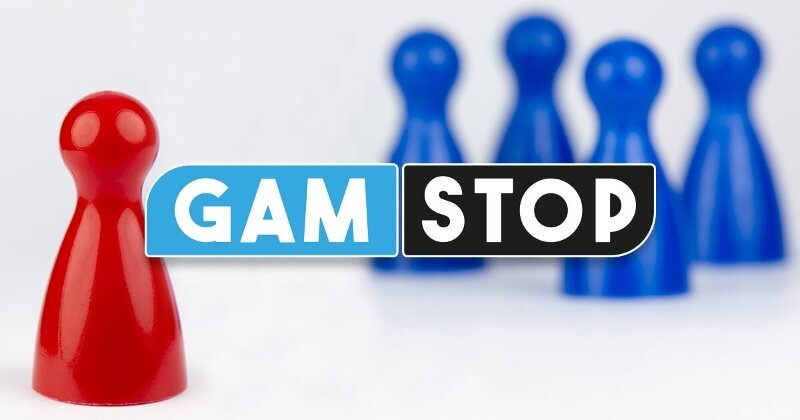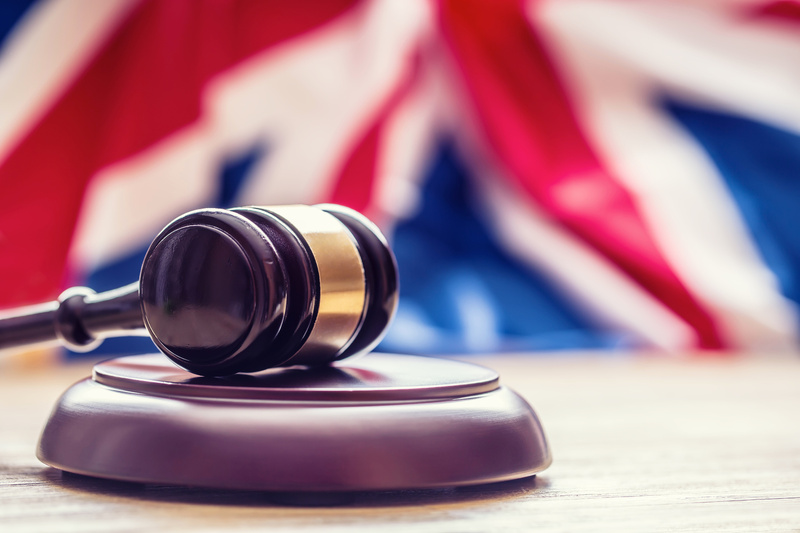What kind of Risk does Gambling addiction pose?
An addiction to gambling is never a healthy thing. It doesn’t matter whether you have a gambling addiction or if you know someone who does, the sickness destroys relationships and corrodes lives. Regrettably, the number of gambling addiction cases in the UK is on the rise, especially among the smartphone-savvy generation that is now in its 20s.
If you are going to gamble, ensuring you download casino apps is one of the best ways to keep you within your limits. We’ll discuss more about the benefits of legal, high-security casino apps and websites later on, as well as directing you to the best gambling addiction help you can get online.
Gambling addiction should not be taken lightly. Both the player and those nearby suffer harm from it. Serious health issues, financial ruin, and even suicidal thoughts can result from it.
In fact, Public Health England estimates that the annual cost of gambling addiction and the associated behaviour is $1.27 billion. That sum of money demonstrates the size of the challenge facing the nation.
Here are some gambling addiction stats you might not know:
- 44% of Brits have some form of gambling activity
- 27% of people have gambled in an online casino in the UK, up from 18.4% in 2018
- The majority of this is lottery gambling. Just 0.7% of Brits play casino games
- In contrast, 3.8% of people in the UK bet on football
- Problem gambling is spiking among those aged 16 to 24
- Nearly 4% of people aged 25 to 34 are at a moderate risk of problem gambling
How bad is a gambling addiction?
As we’ve mentioned above, gambling addiction is bad… very bad. There are issues that come up almost immediately when you’re addicted to gambling. These include:
- Losing your money – People can lose hundreds of thousands of pounds to a gambling addiction. Thankfully safeguards like the £2 bet limit on gaming machines has helped reduce this risk, but there is always a chance you can lose everything if you gamble with an addiction
- Mental suffering – The mental anguish a gambling addiction places on a person is horrific. Many problem gamblers cannot think about anything other than their next bet, and it affects everything else in their lives
- Self abuse – Many problem gamblers turn to self abuse as a means of trying to control their addiction or numbing the pain
- Abuse to others – Sadly, addicted gamblers are more likely to abuse others too, such as their family, friends, colleagues and casino staff members. This can lead to police getting involved
- Relationship breakdown – So often we hear stories of addicted gamblers suffering breakdowns in their personal relationships because of their behavioural changes
- Homelessness – Eventually an addicted gambler may find themselves homeless as they cannot afford to pay their bills
But there is also another worrying aspect of gambling addiction: playing on illegal sites. Players addicted to gambling can put in place as many blockers as they like, but sometimes the temptation to play on illegal sites is too much.
This is a serious problem because illegal gambling falls outside the jurisdiction of the UKGC and the UK’s gambling laws, so you don’t have the protection you otherwise would. It’s not like when you play at live casinos and have safeguards in place. It means you’re susceptible to being scammed, losing even more money and not being properly protected.
The best online casinos have safeguards in place not only to keep your money safe from scammers, but also prevent gambling addiction before it takes hold. We’ll come to that later in this article.
How to spot an addicted gambler
This isn’t an easy task. Addicted gamblers are very, very good at hiding their problems. They develop methods of hiding their financial transactions, keeping their activities secret, and building a mountain of lies. Worryingly it’s often at a stage of severe addiction that the gambler shows their first signs – and by this point a lot of work is needed to bring them back around.
However, even if it does get to a developed stage of the addiction, it’s better to spot it then than never at all. Here are some signs someone you know is addicted to gambling:
- Becoming impulsive – Behavioural changes, especially around impulsivity and aggression, is a sign of not being in control
- Being secretive about whereabouts – This is particularly pertinent with partners or family members
- Betting too much – Someone constantly looking at their phone, or popping to the casino or bookmakers in their lunch break, may be addicted
- Looking at phone more than usual – Indeed, constantly looking at one’s phone for the latest football scores, or playing a quick casino game, is a sign of addiction
- Seeming stressed – Stress is hard to conceal and someone who begins to show signs of stress regularly could be worried about their gambling losses, or just preoccupied by gambling
- Unwilling to talk about money – This is a big one, especially for partners and family members to be aware of. If someone suddenly doesn’t want to talk about money anymore, they may be hiding something
Of course, you don’t need to be passive to spot an addicted gambler. You can always be direct and ask hard-hitting questions. Now, this might not get the right response straightaway. An addicted gambler is likely to hit back, argue and be in denial. But even opening the box a little bit to the idea of them being addicted might help start the process of addressing the issue.
Steps to prevent a gambling addiction
There are two starting points to helping someone who has a gambling addiction. The first is to prevent them from ever being addicted in the first place. The second is to react once you discover they have a gambling problem.
So, in the first instance it’s all about prevention before addiction strikes. And there are plenty of prevention methods that don’t just rely on abstinence. OIn fact, many methods of stopping gambling addiction are built into the gambling experience, such as tools to limit spending and block accounts.
Here are some steps one can take to addressing gambling addiction before it even starts:
- Abstinence – Not starting gambling is perhaps the best way to never risk a gambling addiction. But often abstinence is not suitable for people
- Choosing the right site – Ensuring you play at a safe and secure casino is paramount to positive gambling experience. For example, the new online casinos reviewed at TMC all have official safeguards in place
- Account limits – You can set an account limit when you join a new casino in order to help track your spending and stay within your limits
- Bank spending tools – Indeed, some banks also let you limit the amount of money you can transfer to a casino or sportsbook profile
- Regular conversation – Having conversations with friends and family on how you feel about sports betting and playing online casinos is incredibly important. Sharing knowledge and feelings means you’re less likely to run into problems
- Knowing your limits – Being aware of your own limits and your propensity to become addicted is important. If you’ve previously suffered with other addictions like smoking or alcohol then you may be susceptible to gambling too
Players can also sign up to initiatives such as Gambling Therapy and Be Gamble Aware, where you can get loads of advice on how to game safely and securely, and how to stop gambling if it becomes too much.
What to do if you’re addicted to gambling
If you feel you or someone else is already addicted to gambling then don’t worry, because there are options available to you. Of course, you’ll always get people who just tell you to “stop gambling and it’ll be fine” – but we know this isn’t the case. Gambling addiction is exactly that, an addiction. And people who are addicted do not act rationally. So, it might be that they need help from others to get them on their way to a positive mindset.
Here are some trusted practices you can use to begin the journey of addiction recovery:
- Stop – As we’ve mentioned, this is hard. But the first thing you need to do is stop your gambling. There are many ways to help you stop, and from a mental perspective the big thing you can do is tell yourself why you need to stop gambling
- Self exclusion – This is a tried and tested method to help problem gamblers. Self exclusion means blocking yourself from online casinos and sportsbooks, and barring yourself from highstreet stores
- Bank blockers – Banks can block transactions to online casinos so you can’t fund your addiction. Banks can also help stop transactions going to illegal casino sites
- Google blockers – You can set up search engines like Google not to show results for online gambling. This helps deter you from even checking
- Get external help – Find a friend or family member you trust, and they will help guide you through the addiction. This includes them finding extra resources to help you, and also being someone you can talk to
- Talk, talk, talk – Indeed, talking is hugely important. Therapists and problem gambling groups can help you talk through your problems. Likewise, talking honestly and openly to a partner or friend might be difficult at first but will feel good almost immediately
- Find alternative activities – Many recovering addicts find alternative things to do with their time, such as walking, running, craftwork and cooking. It forms part of abstinence and works very well
If you’re still struggling then contacting charities such as GAM Stop and gamcare can help. They’ll listen to you and set you on the right path to recovery.
Still need help with gambling addiction?
Always keep in mind that you have access to people. Hiding a gambling addiction and gambling debts only makes things worse because it delays your dealing with the problem, which typically results in a downward spiral.
Similarly, you should speak with someone if you think they might have a gambling addiction. It doesn’t have to be accusatory; instead, you could start by asking them about their gambling habits before moving on to more effective questioning.
Believe that assistance is available, no matter what your circumstances. Along with the law, family friends, charities, and organisations.




